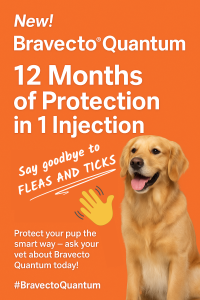When it comes to traveling with pets, whether by air or land, the journey requires careful planning and preparation. One of the most critical aspects of this preparation is understanding the laws and regulations surrounding pet travel. These rules vary from country to country and even from airline to airline, and failure to adhere to them can result in complications, delays, or worse—your pet being denied travel or facing health risks. For pet owners, staying informed is essential to ensure the safety, comfort, and well-being of animals during transit.

Compliance with International and Domestic Laws
Different countries have distinct rules regarding the importation and exportation of animals. Some countries require specific vaccinations, blood tests, or quarantine periods before animals can enter or leave the country. Failing to meet these requirements can result in fines, delays, or even having the pet denied entry.
By researching and staying updated on these laws, you can help your clients avoid unnecessary stress or potential problems at the border. This is especially critical for veterinarians advising clients on international travel, as they can provide the necessary vaccinations, health certificates, or other documentation that may be required.
Airline-Specific Regulations
Not all airlines have the same policies when it comes to traveling with pets. Some may have breed restrictions (e.g., snub-nosed dogs that are more susceptible to breathing issues), while others might limit the number of animals allowed in the cabin or cargo hold. Additionally, the size and weight of pets allowed, along with specific requirements for carriers and documentation, can vary widely.
Knowing the regulations of the specific airline that a client intends to use allows veterinarians to provide tailored advice. For instance, you can recommend the right type of carrier for a pet’s comfort and safety, or inform clients about necessary pre-flight health checks. Some airlines might require specific forms from a licensed vet, so it’s critical to be aware of the unique requirements for each airline.
Pet Safety and Comfort
Understanding the rules about pet travel is also crucial for the safety and comfort of the animal. For example, during extreme weather conditions, some airlines might not allow pets to travel, or they may provide specific guidelines about how to handle pets in transit. Veterinarians can help owners prepare by advising on how to keep pets hydrated, calm, and comfortable during the journey.
Proper research can also highlight whether pets need special accommodations for medical conditions, and how to make sure they are not exposed to excessive stress or unsafe conditions while traveling.
Health and Vaccination Requirements
Some destinations require pets to meet certain health and vaccination standards before travel, including rabies vaccination certificates or specific parasite treatments. Researching pet travel laws ensures that pets are not exposed to diseases they are not vaccinated against, and ensures that owners are complying with health regulations to prevent the spread of contagious diseases.
Veterinarians play an essential role in advising pet owners on these health requirements and providing the necessary documentation for smooth travel.
Minimizing Risks During Travel
Traveling with pets comes with certain risks, such as heatstroke, dehydration, or injury, especially when animals are transported in cargo holds. By staying informed about airline policies and legal requirements, veterinarians can guide owners in reducing these risks. For example, they can recommend the best times to travel, provide advice on sedation (if appropriate), and suggest ways to ensure pets are well-fed and hydrated throughout the journey.
APHIS
Traveling with pets requires much more than just booking a flight and securing a carrier. There is a critical element that many pet owners overlook: the necessary paperwork, particularly when traveling to or from the United States. The U.S. Department of Agriculture’s Animal and Plant Health Inspection Service (APHIS) plays a vital role in ensuring that pets meet the health and safety standards required for travel. Understanding APHIS regulations and the required documents is essential to ensure a smooth journey for your pet.
APHIS is the federal agency responsible for regulating the movement of animals, including pets, into and out of the United States. Its primary focus is on animal health, biosecurity, and preventing the spread of diseases such as rabies and other zoonotic infections. This agency issues health certificates, verifies vaccination statuses, and ensures compliance with international animal importation laws.
For pet owners traveling internationally or domestically (in and out of the U.S.), APHIS certification and paperwork are often required to guarantee the pet’s health and prevent disease outbreaks.
WHAT DO OWNERS NEED TO DO TO PREPARE FOR PET TRAVEL?
Do your research! Start the process 2-3 months before travel. It is the owner’s responsibility to check the requirements from APHIS and the airline. You will likely need to make an appointment with your veterinarian to complete all the requirements. Be prepared for your veterinary appointment by having all documentation and requirements ready to make it a smooth and quick process. Keep in mind not all veterinarians are certified to provide these travel documents. Depending on where you travel, you may have to seek a different veterinarian to get the certificates needed for your destination.
Below are a list of helpful links including the APHIS website that lists all requirements for travel in the US and internationally.
- APHIS http://www.aphis.usa.gov/pet-travel
- American Airlines Pet Travel https://www.aa.com/i18n/travel-info/special-assistance/pets.jsp
- Southwest Airlines Pet Travel https://support.southwest.com/helpcenter/s/article/pet-policy
- United Airlines Pet Travel https://www.united.com/en/us/fly/travel/traveling-with-pets.html
- Delta Airlines Pet Travel https://www.delta.com/us/en/pet-travel/overview
Scroll down to make an appointment online or call 806-794-4118.

